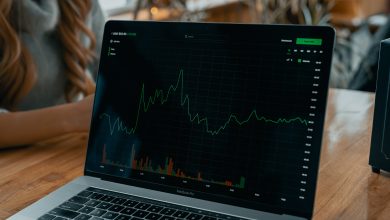Best And Worst Investments During Inflation

Introduction:
Inflation, the rise in prices of goods and services over time, is a phenomenon that affects economies worldwide. As an investor, it is crucial to understand the impact of inflation on your investments and make informed decisions to preserve and grow your wealth. In this article, we will explore the best and worst investments during inflation and provide insights into strategies that can help you navigate this challenging economic environment.
Best Investments during Inflation:
Real Estate:
Real estate has long been considered a hedge against inflation. During inflationary periods, property values tend to rise, allowing investors to benefit from capital appreciation. Additionally, real estate investments can generate rental income, providing a steady cash flow.
Stocks and Equities:
Historically, stocks have outperformed other asset classes during inflationary periods. Companies can pass on increased costs to consumers through higher prices, resulting in higher profits. Investing in well-managed companies with a strong track record can be a wise choice during inflation.
Treasury Inflation-Protected Securities (TIPS):
TIPS are government-issued bonds specifically designed to protect investors from inflation. The principal value of these bonds adjusts with changes in the Consumer Price Index (CPI), ensuring that investors’ returns keep pace with inflation.
Commodities:
Commodities, such as oil, natural gas, and agricultural products, often experience price increases during inflation. Investing in commodities can provide a hedge against rising prices and potentially deliver attractive returns.
Gold and Precious Metals:
Gold and other precious metals are often seen as a safe haven during inflationary periods. They have intrinsic value and can serve as a store of wealth when traditional currencies lose purchasing power.
Dividend-Paying Stocks:
Investing in dividend-paying stocks can provide a regular income stream that may keep pace with inflation. Companies that consistently pay dividends tend to be stable and financially strong, making them attractive during inflation.
High-Yield Bonds:
High-yield bonds, also known as junk bonds, offer higher yields than traditional bonds but come with increased risk. These bonds can provide income and potential protection against inflation if chosen wisely.
Peer-to-Peer Lending:
Peer-to-peer lending platforms allow individuals to lend money directly to borrowers, bypassing traditional financial institutions. By diversifying your lending across various borrowers, you can potentially earn attractive returns that are less susceptible to inflation.
Cryptocurrencies:
Cryptocurrencies, such as Bitcoin and Ethereum, have gained popularity in recent years. While volatile, some investors view cryptocurrencies as a hedge against inflation due to their decentralized nature and limited supply.
Worst Investments during Inflation:
Cash and Savings Accounts:
Holding cash or keeping funds in low-interest savings accounts can be detrimental during inflation. The purchasing power of cash diminishes as prices rise, eroding its value over time.
Low-Yield Bonds:
Bonds with low yields offer minimal returns, making it challenging to keep up with inflation. Fixed-rate bonds, especially those with long maturities, can be particularly susceptible to losing value during inflationary periods.
Long-Term Fixed-Rate Bonds:
Long-term fixed-rate bonds lock in a specific interest rate for an extended period. If inflation rises significantly, the fixed interest payments may not keep pace with the rising cost of living, resulting in a loss of purchasing power.
Traditional Savings Bonds:
Traditional savings bonds often have fixed interest rates that do not adjust with inflation. While they are considered low-risk, they may not provide adequate returns to combat inflation effectively.
Luxury Items with Depreciating Value:
Investing in luxury items that depreciate in value, such as high-end vehicles or fashion accessories, may not be a wise choice during inflation. These assets may not retain their value or appreciate significantly, making them poor investments.
High-Interest Debt:
Carrying high-interest debt, such as credit card debt or payday loans, can be financially burdensome during inflation. As interest rates rise, the cost of servicing these debts increases, potentially leading to financial strain.
How to Profit From Inflation:
Profiting from inflation requires a strategic approach that takes advantage of changing economic conditions. Here are five steps to help you profit from inflation:
Invest in Inflationary-Resistant Assets:
Seek out assets that have historically performed well during inflationary periods, such as real estate, stocks, and commodities like gold and silver.
Consider Inflation-Indexed Bonds:
Explore investing in bonds that are specifically designed to protect against inflation, such as Treasury Inflation-Protected Securities (TIPS). These bonds adjust their value with changes in inflation, providing a hedge against rising prices.
Focus on High-Growth Companies:
Look for companies with strong growth potential and a track record of outperforming during inflationary times. These companies may be able to pass on increased costs to consumers and generate higher profits.
Diversify Your Portfolio:
Spread your investments across different asset classes and sectors to reduce risk and maximize potential returns. Diversification helps ensure that your portfolio is not overly exposed to any single investment that may be adversely affected by inflation.
Stay Ahead of the Curve:
Stay informed about economic trends, inflationary indicators, and government policies that may impact inflation. Monitor the market and adjust your investment strategy accordingly to position yourself for maximum profitability.

Strategies for Investing during Inflation:
Diversification:
Spreading your investments across different asset classes can help mitigate risks and capture potential gains during inflation. Diversification allows you to benefit from the performance of various investments while reducing exposure to any single asset.
Dollar Cost Averaging:
Investing a fixed amount regularly, regardless of market conditions, can be an effective strategy during inflation. Dollar cost averaging reduces the impact of market volatility, allowing you to accumulate more shares when prices are low and fewer shares when prices are high.
Long-Term Focus:
Investing with a long-term perspective can help navigate short-term market fluctuations caused by inflation. Over extended periods, the effects of inflation tend to average out, and well-managed investments have the potential to deliver favorable returns.
Consider Inflation-Indexed Investments:
Inflation-protected assets, such as TIPS mentioned earlier, can provide a direct hedge against inflation. These investments adjust their value or income based on changes in inflation, preserving purchasing power.
Consult with a Financial Advisor:
Seeking guidance from a qualified financial advisor can help you make informed investment decisions tailored to your specific circumstances. They can provide personalized advice based on their expertise and knowledge of the market.
Tips For Investment During Inflation:
Stay Informed: Stay updated on economic indicators and trends related to inflation. Monitor news, reports, and expert analysis to make informed investment decisions.
Focus on Quality: Invest in high-quality assets and companies that have a strong track record of weathering inflationary periods. Look for companies with sustainable competitive advantages and a history of generating consistent returns.
Consider Dividend Growth Stocks: Dividend growth stocks are companies that consistently increase their dividend payouts over time. These stocks can provide a growing income stream that may help offset the impact of inflation.
Review Your Bond Portfolio: Review your bond portfolio and consider shifting towards inflation-protected bonds, such as TIPS. These bonds adjust their returns based on inflation, providing a hedge against rising prices.
Monitor Interest Rates: Keep an eye on interest rates and the actions of central banks. Inflationary periods often lead to rising interest rates, which can impact various investments. Adjust your portfolio accordingly to account for changing interest rate environments.
Evaluate Real Estate Investments: Assess real estate investment opportunities carefully during inflation. Consider properties with potential for rental income growth and locations where demand is likely to remain strong despite rising prices.
Assess Commodities Exposure: If you choose to invest in commodities, evaluate the specific commodities and their supply-demand dynamics. Understand the factors that drive their prices and consider diversifying across different commodities to manage risks.
Avoid Overreacting: While it’s essential to consider the impact of inflation on investments, avoid making impulsive decisions based solely on short-term market movements. Stick to your long-term investment strategy and objectives.
Review and Adjust Portfolios: Regularly review your investment portfolio to ensure it remains aligned with your financial goals and risk tolerance. Adjust asset allocations as needed to adapt to changing market conditions.
Manage Debt: During inflation, the cost of servicing debt can increase. Prioritize paying down high-interest debts and consider refinancing options to secure more favorable interest rates.
Consider International Investments: Look beyond domestic markets and consider diversifying globally. Different countries may experience varying levels of inflation, offering opportunities for investments in regions that may fare better during inflationary periods.
Investigate Inflation-Linked Funds: Explore investment options such as mutual funds or ETFs that specifically focus on inflation-linked assets. These funds may offer convenient exposure to a diversified basket of inflation-protected investments.
Maintain Emergency Fund: During inflation, unexpected expenses can arise. Maintain an emergency fund with sufficient cash reserves to cover unforeseen costs without having to liquidate investments at unfavorable times.
Evaluate Tax Implications: Understand the tax implications of your investments and consider strategies to minimize tax liabilities. Consult with a tax professional to explore tax-efficient investment strategies.
Review and Adjust Regularly: Regularly review and reassess your investment strategy to ensure it remains aligned with your financial goals, risk tolerance, and changing market conditions. Stay proactive and make adjustments as needed.
Remember, investing during inflation requires careful consideration and a long-term perspective. It’s crucial to tailor your investment approach to your individual circumstances and consult with professionals as needed. For more insight, visit this article by CNBC to get more understanding.
Conclusion:
Navigating investments during inflation requires careful consideration of various asset classes and strategies. While certain investments, such as real estate, stocks, TIPS, and commodities, tend to perform well during inflation, others, like cash, low-yield bonds, and luxury items, may be detrimental to wealth preservation. By diversifying your portfolio, staying informed, and consulting with professionals, you can position yourself for success in an inflationary environment.
FAQs
Q1: Can stocks be a good investment during inflation?
Stocks have historically performed well during inflation, as companies can pass on increased costs to consumers through higher prices.
Q2: Are real estate investments affected by inflation?
Real estate investments can benefit from inflation, as property values tend to rise, providing capital appreciation and potential rental income.
Q3: What are some examples of commodities?
Commodities include oil, natural gas, precious metals, agricultural products, and other raw materials.
Q4: How can I protect my investments from inflation?
Diversification, investing in inflation-protected assets, and seeking professional advice are effective strategies to safeguard investments from inflation.
Q5: Is it advisable to invest in cryptocurrencies during inflation?
Cryptocurrencies are a highly volatile investment. While some view them as a hedge against inflation, their risks and potential rewards should be carefully considered before investing.




